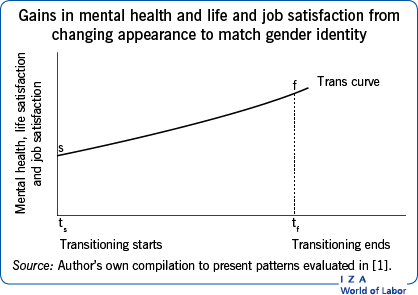Elevator pitch
Acceptance of one’s gender identity and congruence between one’s gender identity and outward appearance are associated with less adverse mental health symptoms, and greater life and job satisfaction. However, trans people are subject to human rights violations, hate crimes, and experience higher unemployment and poverty than the general population. Trans people often feel that they are citizens who are not allowed to be themselves and practice their authentic identity. Many biased treatments of trans people could be attenuated if legal protections and inclusive workplace practices were in place.
Key findings
Pros
Acceptance of one’s trans identity is related to personal growth and resilience.
During and after transitioning, trans people experience better mental health, and greater life and job satisfaction than before transitioning.
Supportive workplace environments are related to greater disclosure of a trans identity, job satisfaction, affective commitment, and lower job anxiety.
Becoming a man is related to a small rise in earnings.
Trans employees, after having reached the point of passing, do not generally experience the bullying and harassment to which they were subjected before transitioning.
Cons
Trans people are exposed to extremely high levels of violent assault (and even murder) just for being who they are.
Trans people face higher poverty and homelessness, higher unemployment, and lower incomes as compared to non-trans people.
Around half of the EU member states require by law that trans people undergo sex reassignment surgery before their gender identity is officially recognized.
More than a third of the US states do not prohibit gender identity discrimination at work.
Becoming a woman is related to a fall in earnings.
